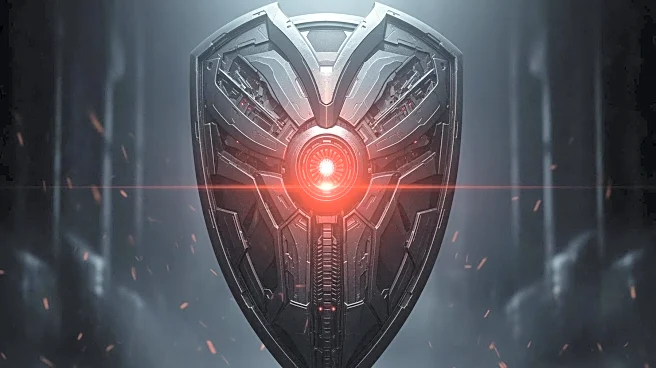What's Happening?
The showrunner of 'The Boys,' Eric Kripke, has indicated that fans should not expect Marie, a character from the spin-off series 'Gen V,' to overpower Homelander in the upcoming fifth season of 'The Boys.'
Despite Marie's significant abilities, which include controlling blood, Kripke emphasizes that she has not yet mastered her powers. This development follows the conclusion of 'Gen V' Season 2, where Marie's potential was highlighted. Kripke compares Marie's journey to that of Neo from 'The Matrix,' suggesting that while she possesses raw power, her character arc involves learning to control it. The storyline will continue with Marie joining forces with other characters like Annie/Starlight and A-Train in their ongoing battle against the corporation Vought.
Why It's Important?
This narrative decision underscores a thematic focus on character development and struggle, rather than immediate triumph. By not positioning Marie as an all-powerful figure, the series maintains dramatic tension and character growth, which are crucial for engaging storytelling. This approach also reflects a broader trend in superhero narratives that prioritize personal growth and moral complexity over straightforward power dynamics. For fans and viewers, this means a more nuanced and potentially unpredictable storyline, which could enhance viewer engagement and investment in the characters' journeys.
What's Next?
As 'The Boys' Season 5 approaches, viewers can anticipate further exploration of Marie's abilities and her integration into the main storyline. The series is expected to delve deeper into the dynamics between the characters and their collective fight against Vought. The potential for a showdown with Homelander remains, but it is likely to be a complex and multifaceted confrontation rather than a simple battle of powers. This setup promises to keep audiences intrigued and invested in the unfolding narrative.
Beyond the Headlines
The decision to focus on Marie's struggle with her powers rather than immediate mastery highlights a cultural shift in storytelling that values character depth and realism. This approach resonates with audiences who appreciate stories that reflect real-world complexities and challenges. It also opens up discussions about power, responsibility, and the ethical implications of superhuman abilities, themes that are increasingly relevant in contemporary discourse.









